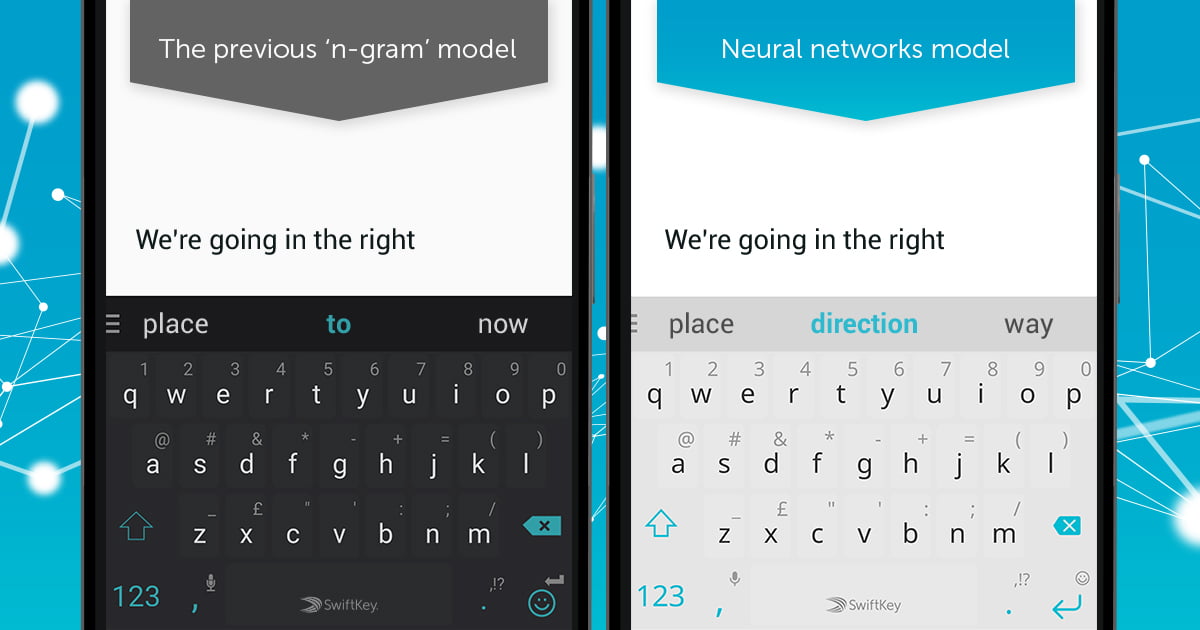

We’ve all been there, cranking out a text message when the phone prompts you to insert a wonky word or autocorrects to something out of context. Text message fails are the stuff Internet memes are made of.
SwiftKey hopes to do away with them.
The British company, which was acquired by Microsoft earlier this year, already makes a popular smartphone keyboard app that predicts the next word in your text message or fixes ones you’ve fat-fingered. Now, software updates that SwiftKey introduced to select users Thursday will make those suggestions “increasingly accurate, increasingly personal, increasingly human,” said co-founder Ben Medlock.
SwiftKey predictions will now be powered by artificial neural networks that provide a more sophisticated analysis of written language, picking up on context clues and word usage in real time in an effort to replicate the human thought process. The technology, called Neural Nets, looks at an entire sentence, deciphers the relationship between words and assigns each word a code. It then searches for words with complementary codes and serves up those most likely to fit into the sentence.
For example, the sentence stem “I will meet you at the _____” would generate the suggestions “office,” “hotel” and “airport” using the Neural Nets software. Under the company’s existing technology, the words “end,” “moment” and “same” would have been predicted instead. The software will roll out to Android users later this month, Medlock said, with Apple users to eventually follow.
“Neural networks have been around for a long time, really since the ’50s, but only fairly recently have people started to realize that given current levels of computing and given the amount of data that we have access to now, you can actually make these things work in a way that wasn’t possible even five or 10 years ago,” Medlock said.
Making them work on a smartphone, however, eluded SwiftKey for two years. Medlock said the technology traditionally requires ample storage space, memory and processing power, meaning it was previously too large and draining to run on such a small device. That’s part of the reason many existing applications rely on language frequency and statistics, rather than real-time clues, to predict words.
“What you find with the existing technology is sometimes it works really well, but when it goes outside of certain well-defined premises . . . it goes from predicting something that makes a lot of sense to something that doesn’t make sense at all,” he said.
More than 300 million mobile devices have deployed the SwiftKey technology since it became available on Android devices in 2010 and Apple devices in 2014.
In February, Microsoft’s Vice President of Technology and Research Harry Shum announced in a blog post that the company would acquire SwiftKey for $250 million with plans to “explore scenarios for the integration of the core [SwiftKey] technology across the breadth of our product and services portfolio.”
[Source:-The washington Post]



